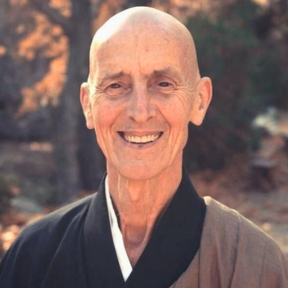With Ryushin Paul Haller and other teachers
Saturday, August 9, 1–4:30 pm, City Center dining room and Online
This is a free informational session to introduce Establishing the Path of Practice, Part 2, the second 8-week semester of the Establishing the Path of Practice series. This informational session will be held in the City Center dining room and will be available via livestream.
This series is focused on expressing practice in our lives, and is designed to help participants develop or deepen a practice of zazen (awareness meditation) and mindfulness during daily activities and relationships. Meditation experience would be helpful, but is not essential. Detailed awareness instructions will be offered throughout the course.
Establishing the Path of Practice has three sections that are designed to be taken sequentially, but can be taken separately. To accommodate those who would like to join the second semester but haven’t taken the first semester, the videos and weekly summaries of the first semester will be available on the EPP Class portal.
The 8-week second semester will begin on Tuesday, October 7; registration for the class will open soon. Please register for this introductory afternoon by Friday, August 8th.
A brief description of the three parts of the course follows below (this is Part 2):
- Establishing the fundamentals of practice (Part 1) – This part emphasizes cultivation and daily practice of awareness meditation: awareness of body, breath, emotions, thinking, and the ability to bring awareness to daily activities.
- Exploring self and relating to others (Part 2) – Through attention to habits of thought, feelings, and actions/reactions in ourselves and with others, we will explore how these habits arise in daily life and learn ways to practice with them.
- Expressing practice in our lives (Part 3) – We will investigate how the insights we are realizing through practice can be expressed and embodied in all aspects of our lives, and how cultivating intention can support this.
Each section includes meditation, contemplation, reflections, and suggested practices based on Early Buddhist and Zen teachings. They also include yoga and breathing exercises, and the opportunity to explore practice themes through experiential exercises/practices. Participants will have the option to meet regularly in a small group led by a teacher to discuss their experience with the suggested practices.
